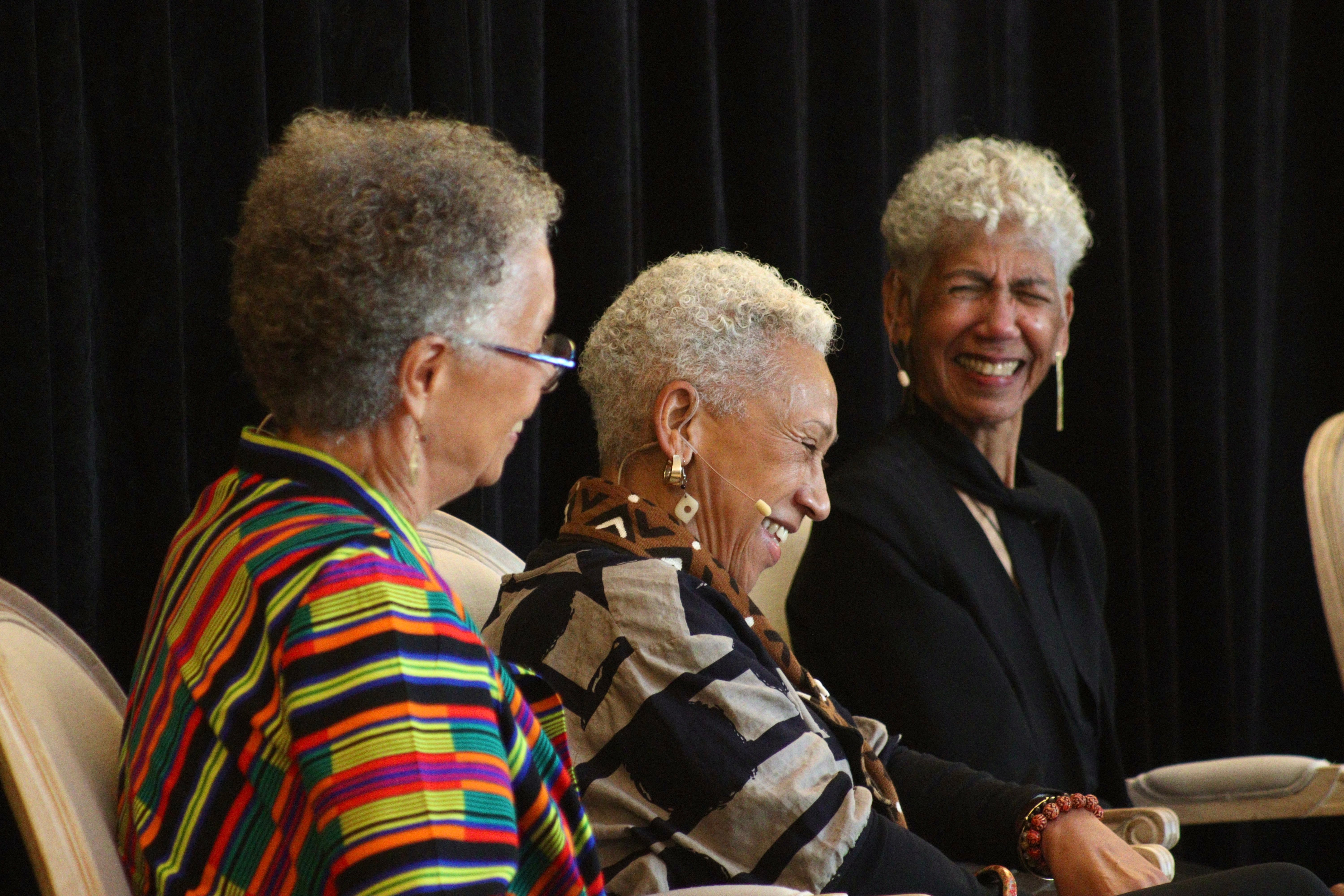On Tuesday, the second annual Justice, Equity, Diversity and Inclusion (JEDI) Fair at Green Library commemorated the recent release of the photo book “Comrade Sisters,” by photojournalist Stephen Shames and Black Panther Intercommunal News Service editor and writer Ericka Huggins.
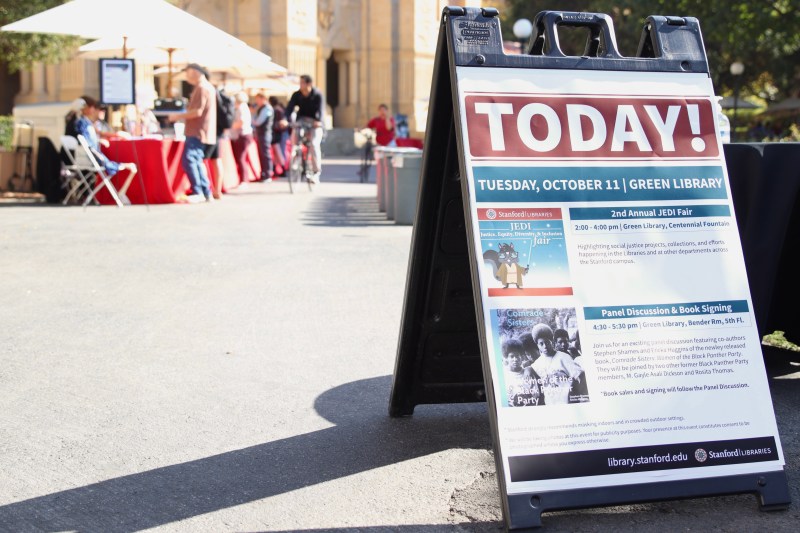
“Comrade Sisters” documents the crucial role of women in the BPP, a movement known for its significance for the social and spiritual uplifting of people of color. Shames, acclaimed for his extensive photographic documentation of the Black Panther Party (BPP), related to the audience the significance of the book: “I’m really proud to be part of this book because it gives a voice to these wonderful women [who] created a blueprint for a just society, a blueprint which unfortunately, in the U.S., we haven’t achieved yet.”

“Sisters” Ericka Huggins, M. Gayle Asali Dickson and Rosita Thomas, three BPP leaders and subjects of many of Shames’s photographs in the book, described their aspirations for the book and for women in the 21st century. Thomas, a leader of the Seattle chapter of the Party, called the book “a wonderful celebration of acknowledge[ment] and recognition” of the roles the Panther women played in the organization’s community outreach.
Dickson, a graphic artist for the BPP Newspaper, similarly lauded the book’s recognition of women’s role in the movement. “It speaks to women, and it speaks to everybody. It means a lot because historically women are characterized as voiceless, and in visual images they’ve been characterized by limited roles,” she remarked.
Dickson also served as a preschool teacher at the Oakland Community School during her time in the Party. The program provided free meals and a creative space for underprivileged children in the area.
“We were taught to serve the people, body and soul, and that’s what we did,” Dickson said. “I think that is why I went into ministry — I wanted to serve in one capacity or the other, and I started the art and dinner program for the children in the neighborhood.”
Thomas was recognized for contributing to the Party’s cause through her quilting and creation of the artwork “Power to the People,” on display in Green Library’s Bender Room during the panel. The quilt summarized the BPP’s Survival Programs and characteristic 10-Point Platform.
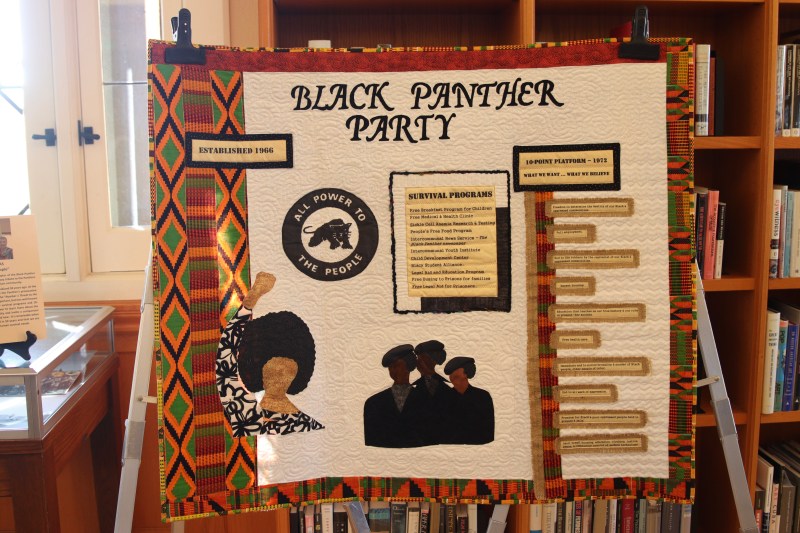
Huggins shared personal experiences addressing social issues in the community, such as the wellbeing of children and providing regular free meals.
Prior to the panel discussion, Shames held a special signing in Hohbach Hall with Stanford’s photography community. The event included an exhibition of the original draft for the 10-Point Platform and other photos with his and BPP co-founder Bobby Seal’s signatures.
Shames’s work with the Party began in 1967 upon invitation to photograph the Panthers as a 20-year-old college student at Berkeley.
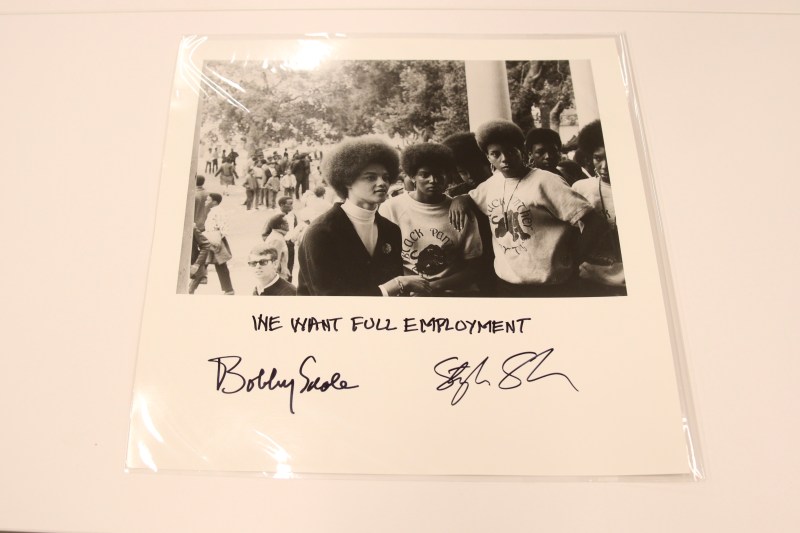
“Bobby Seale really liked my pictures and wanted to use them in the paper,” Shames said. “Bobby really was the one who got me involved with the Panther Party, and he became my mentor and like an older brother to me.”
Panel moderator Dr. Kimberly Thomas McNair, a lecturer in Stanford’s African and African American Studies Program, expressed that she “had a heart full of gratitude” to have the opportunity to interview the women. “It’s so often that people who you will never interact with made ultimate sacrifices that you don’t even know about for the betterment of your entire community.”
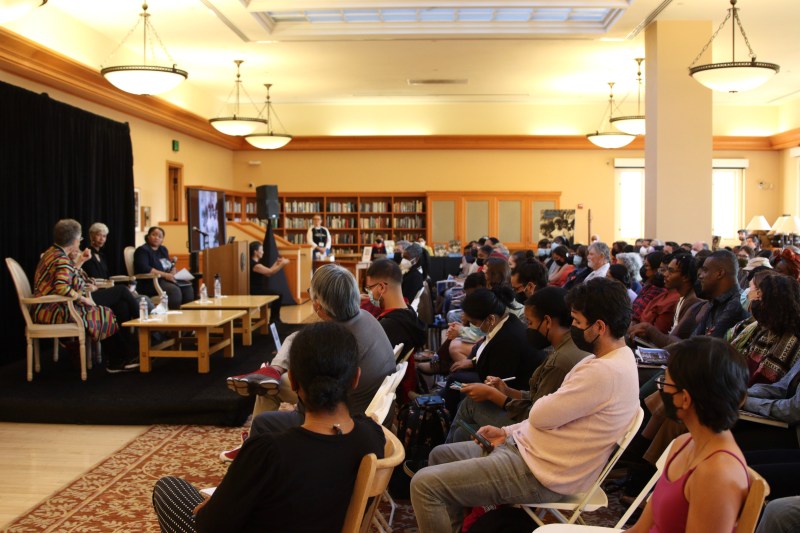
Bringing the Panther women “meant a lot” to JEDI Fair coordinator and organizer Felicia Smith, Stanford’s racial justice & social equity librarian. “A lot of people including myself didn’t really know the story of a lot of the women of the Black Panthers — most of the people, when you say the words ‘Black Panther,’ they immediately think of Huey Newton and Fred Hampton, and so the fact that over 70 percent of them were women and young women, I never knew that.”
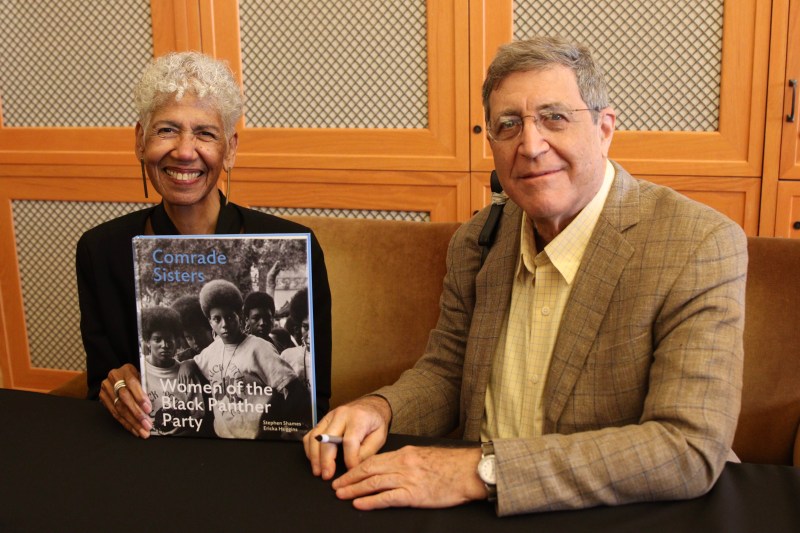
Huggins informed The Daily of the significance of bringing the book to the Stanford community. At Stanford, “a place of the mind, we’re bringing heart with this book, and hopefully it will inspire students and staff and faculty to learn from the heart.”
